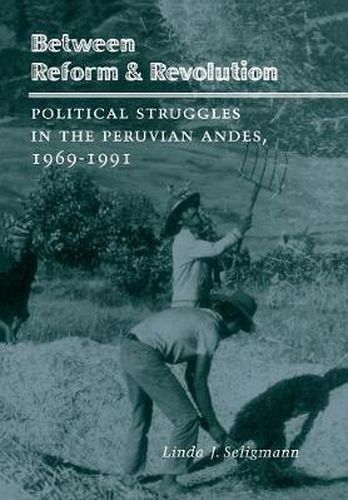Readings Newsletter
Become a Readings Member to make your shopping experience even easier.
Sign in or sign up for free!
You’re not far away from qualifying for FREE standard shipping within Australia
You’ve qualified for FREE standard shipping within Australia
The cart is loading…






The reform programme introduced by Peruvian President General Juan Velasco Alvarado in 1969, a year after he seized power in a military coup, ushered in one of the most ambitious agrarian reforms in Latin America. This book argues that the economic, political, and cultural dynamics set in motion by the reforms are central to understanding the brutal civil war that ensued in Peru between the state and members of the Maoist-Leninist Shining Path guerrilla movement. Based on five years of fieldwork in the southern Andean district of Huanoquite, it portrays the extraordinary complexity of the lives of the Quechua-speaking peasants as they seek to shape their relationships to both the state and the Shining Path. The book also traces the ways in which memories and symbols of Inca, colonial, and modern national authority shape both peasant mobilisation and the rhetoric of the state. This book argues that the economic, political, and cultural dynamics s et in motion by the reforms are central to understanding the brutal civil war that ensued in Peru between the state and members of the Maoist-Leninist Shining Path guerrilla movement.
$9.00 standard shipping within Australia
FREE standard shipping within Australia for orders over $100.00
Express & International shipping calculated at checkout
The reform programme introduced by Peruvian President General Juan Velasco Alvarado in 1969, a year after he seized power in a military coup, ushered in one of the most ambitious agrarian reforms in Latin America. This book argues that the economic, political, and cultural dynamics set in motion by the reforms are central to understanding the brutal civil war that ensued in Peru between the state and members of the Maoist-Leninist Shining Path guerrilla movement. Based on five years of fieldwork in the southern Andean district of Huanoquite, it portrays the extraordinary complexity of the lives of the Quechua-speaking peasants as they seek to shape their relationships to both the state and the Shining Path. The book also traces the ways in which memories and symbols of Inca, colonial, and modern national authority shape both peasant mobilisation and the rhetoric of the state. This book argues that the economic, political, and cultural dynamics s et in motion by the reforms are central to understanding the brutal civil war that ensued in Peru between the state and members of the Maoist-Leninist Shining Path guerrilla movement.